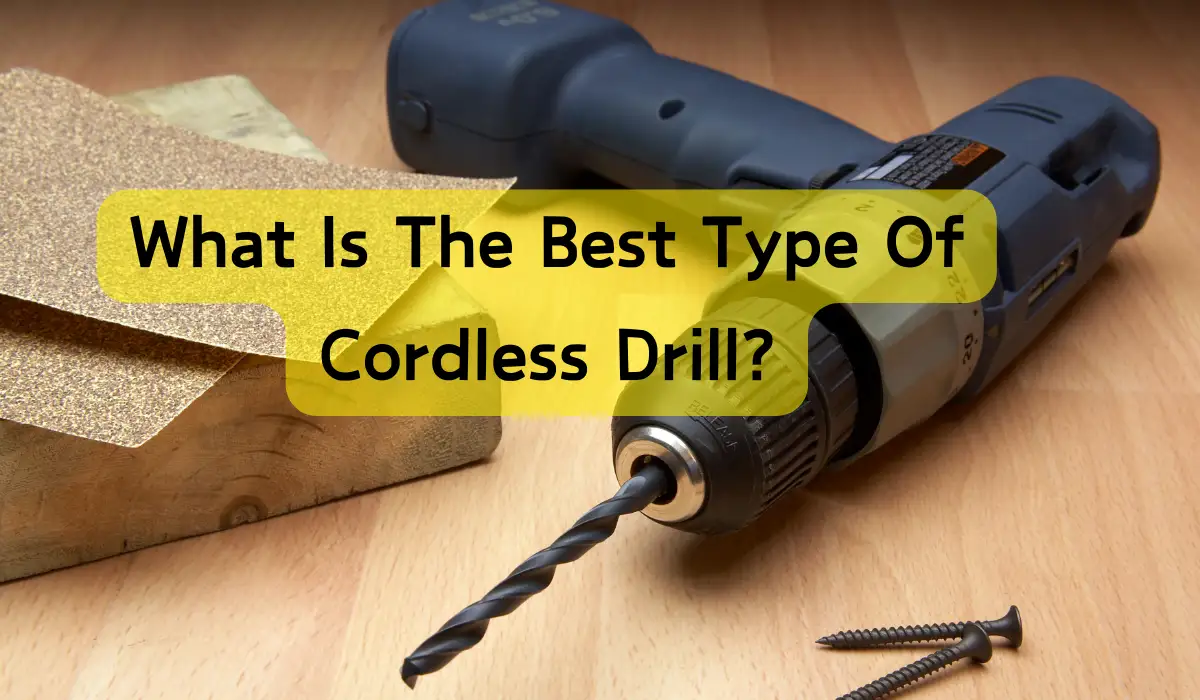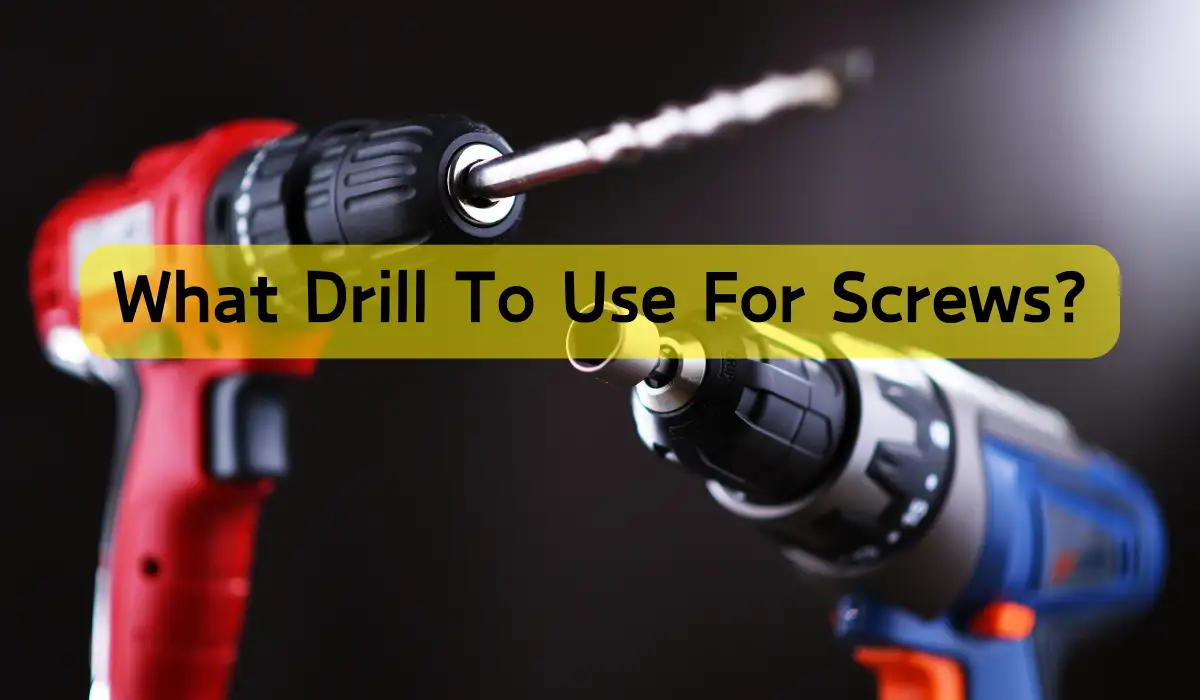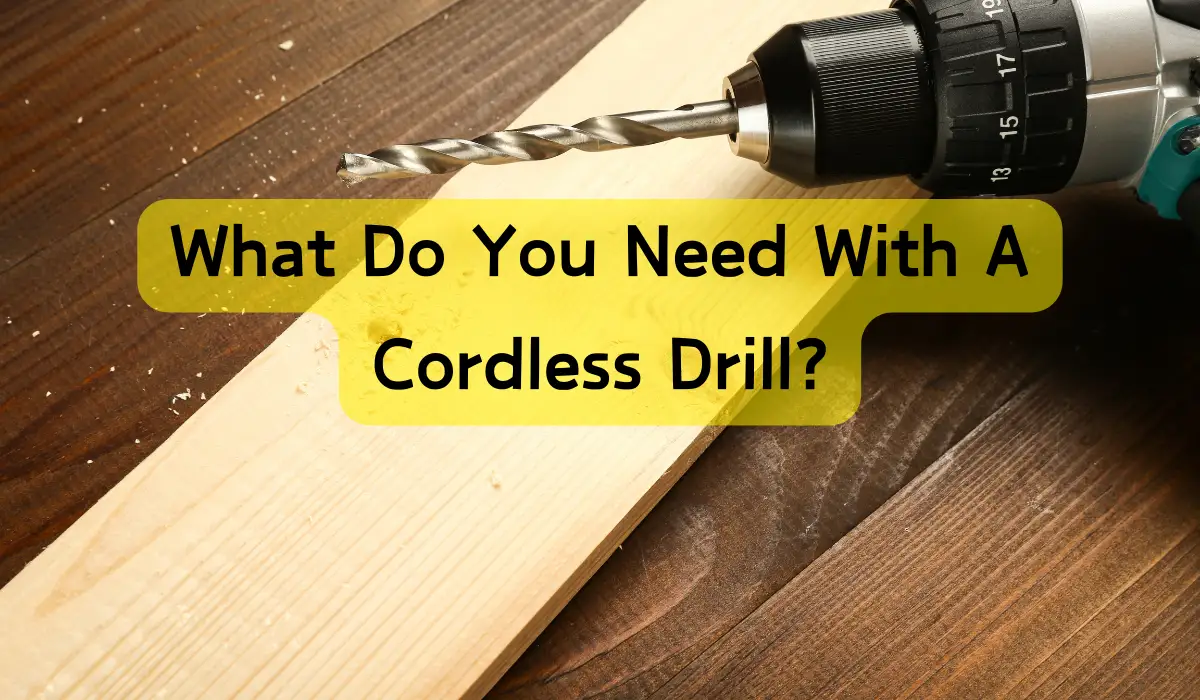You’re looking for the best type of cordless drill, but with so many options, it’s hard to know where to start. First, identify your needs: what tasks will you use the drill for? Consider your environment, budget, and desired level of quality. Are you a DIY enthusiast or a pro contractor? Answering these questions helps narrow down your options. From compact drills to heavy-duty hammer drills, there’s a type of cordless drill for every need. By understanding your needs and key features like battery voltage, speed settings, and ergonomics, you’ll be one step closer to finding your perfect match – and it’s just the beginning.
Jump to
Key Takeaways
• Identify your specific drilling needs, considering task type, environment, and desired quality to narrow down options.
• Choose between compact, heavy-duty, hammer, right-angle, and high-torque drills, each suited for specific tasks and users.
• Consider key features like battery voltage, speed settings, chuck size, weight, and ergonomics to ensure the drill meets your needs.
• Research top brands like DeWalt, Makita, and Bosch, each offering unique features and benefits, to find the best fit for your requirements.
• Ensure the drill’s battery life and charging time align with your workload, considering ampere-hours and fast charging capabilities.
Understanding Your Power Tool Needs
Before investing in a cordless drill, identify the tasks you plan to tackle, as this will help you determine the necessary power, speed, and features to guarantee you get the right tool for the job.
Will you be driving screws, drilling into wood, or mixing materials? Knowing what you’ll be using your drill for will help you choose the right voltage, ampere-hours (Ah), and RPM.
You’ll also want to take into account the environment you’ll be working in.
Will you be working in tight spaces or need to drill overhead? Do you need a drill with a built-in light or adjustable torque?
Think about the weight and ergonomics of the drill, too – will you be using it for extended periods or need to maneuver it in tight spaces?
Lastly, think about your budget and the level of quality you’re willing to invest in.
Are you a DIY enthusiast or a professional contractor?
Answering these questions will help you narrow down your options and find a cordless drill that meets your specific needs.
Types of Cordless Drills Available
There are several types of cordless drills available, each designed to cater to specific needs and preferences.
Compact drills are ideal for small tasks and tight spaces. These lightweight drills are perfect for DIY enthusiasts and homeowners who need to tackle minor projects.
Heavy-duty drills are designed for professionals and serious DIYers who require more power and torque to handle demanding tasks.
Hammer drills are designed for drilling into masonry and concrete. These drills are perfect for construction workers, landscapers, and anyone who needs to drill into hard materials.
Right-angle drills are designed for drilling in tight spaces and corners. These drills are perfect for electricians, plumbers, and HVAC technicians who need to work in confined areas.
High-torque drills are designed for heavy-duty applications such as drilling through thick metal and wood. These drills are perfect for industrial users, farmers, and anyone who needs a drill that can handle demanding tasks.
Key Features to Consider Buying
As you’ve narrowed down the type of cordless drill that suits your needs, it’s time to focus on the key features that’ll make your drilling experience efficient and effective.
When shopping for a cordless drill, you’ll want to examine the following features:
| Feature | Description | Importance |
|---|---|---|
| Battery Voltage | Measures the drill’s power and efficiency | High |
| Speed Settings | Allows for versatility and control | Medium |
| Chuck Size | Affects the type of bits you can use | Medium |
| Weight and Ergonomics | Impacts comfort and ease of use | High |
These features will greatly impact your drilling experience. A higher battery voltage usually means more power and longer battery life. Multiple speed settings allow you to adjust to different materials and tasks. A larger chuck size gives you more flexibility with bit selection. Finally, a lightweight and ergonomic design reduces fatigue and improves control. By evaluating these features, you’ll find a cordless drill that meets your specific needs and preferences.
Top Brands and Their Offerings
With dozens of brands vying for your attention, you need to narrow down your options to the most reputable manufacturers that consistently deliver high-quality cordless drills.
When it comes to cordless drills, you can’t go wrong with brands like DeWalt, Makita, and Bosch. These power tool giants have built a reputation for producing reliable, durable, and high-performance drills that get the job done.
DeWalt, for instance, is known for its robust and ergonomic designs, while Makita is praised for its high-torque motors and long-lasting batteries. Bosch, on the other hand, is renowned for its innovative technology and precision engineering.
Other notable brands include Milwaukee, Hitachi, and Black+Decker, each offering unique features and benefits that cater to specific needs and preferences.
Battery Life and Charging Time
When choosing a cordless drill, you need a battery that can keep up with your workload, and that’s where understanding battery life and charging time comes in.
You don’t want your drill to run out of juice in the middle of a project, leaving you stuck and frustrated. Look for a drill with a battery that can handle your workload.
Check the battery’s ampere-hours (Ah) rating, which indicates its capacity. A higher Ah rating typically means longer battery life.
Charging time is also vital. You don’t want to wait hours for your drill to recharge.
Look for drills with fast charging capabilities, which can give you a quick boost of power. Some drills can charge up to 80% in just 30 minutes.
Consider your workflow and choose a drill that can keep up. If you’re a heavy user, you may want a drill with a longer-lasting battery or one with multiple batteries so you can swap them out when one runs out.
Speed and Torque for Tasks
You need a cordless drill that can deliver the right amount of speed and torque for your specific tasks, whether you’re driving small screws or drilling through thick metal.
The speed of your drill is measured in revolutions per minute (RPM), and you must have a drill that offers variable speed control. This feature allows you to adjust the speed to suit your task, preventing damage to materials or stripping screws.
Torque, on the other hand, is the rotational force that drives the drill bit. It’s measured in units of in-lbs (inch-pounds) or Nm (newton-meters).
For heavy-duty tasks like drilling through concrete or metal, you’ll need a drill with high torque. However, for lighter tasks like driving small screws, lower torque is sufficient.
Consider the types of tasks you’ll be performing most frequently and look for a drill that offers the right balance of speed and torque for those tasks. By doing so, you’ll be able to complete your projects efficiently and effectively.
Making the Right Purchase Decision
Now that you’ve evaluated the speed and torque requirements for your tasks, it’s time to evaluate the features and specifications of different cordless drills to make an informed purchase decision.
When choosing a cordless drill, you’ll want to weigh the battery type, voltage, and ampere-hours (Ah) rating. These factors will impact the drill’s performance, runtime, and overall value. Here’s a comparison of three popular cordless drill options:
| Drill Model | Battery Type | Voltage/Ah Rating |
|---|---|---|
| DeWalt DCD771 | Lithium-Ion | 20V/2.0Ah |
| Makita XFD10R | Lithium-Ion | 18V/2.0Ah |
| Bosch PS31-2A | Lithium-Ion | 12V/2.0Ah |
Assess the weight, ergonomics, and additional features like LED lights, belt clips, and built-in levels. Think about your specific needs and prioritize the features that matter most to you. By weighing these factors, you’ll be well-equipped to make a confident purchase decision and find the best cordless drill for your tasks.
Frequently Asked Questions
Can I Use a Cordless Drill in the Rain or Wet Conditions?
You can use a cordless drill in light rain, but avoid submerging it in water. Check your drill’s IP rating, which measures water resistance. If it’s rated IPX4 or higher, you’re generally good to go in wet conditions.
How Do I Maintain and Clean My Cordless Drill Properly?
You clean your cordless drill by wiping it with a dry cloth, then brush away debris from vents and grills. Regularly check and clean the charging port, and store it in a dry place to prevent rust.
Are Cordless Drills Suitable for Heavy-Duty Construction Projects?
You’ll be happy to know that cordless drills can handle heavy-duty construction projects, but it depends on the drill’s voltage, amp-hour rating, and motor type – don’t expect a low-voltage drill to keep up with high-demand tasks.
Can I Use a Cordless Drill for Precision Drilling Tasks?
You can definitely use a cordless drill for precision drilling tasks, but you’ll want to choose a model with a high torque setting and a precise speed control to get the job done accurately.
Are There Any Safety Precautions I Should Take When Using a Cordless Drill?
When using a cordless drill, you should always wear safety goggles and gloves to protect yourself from flying debris and electrical shock. You’re also advised to keep loose clothing and long hair tied back, and avoid overreaching or twisting.




